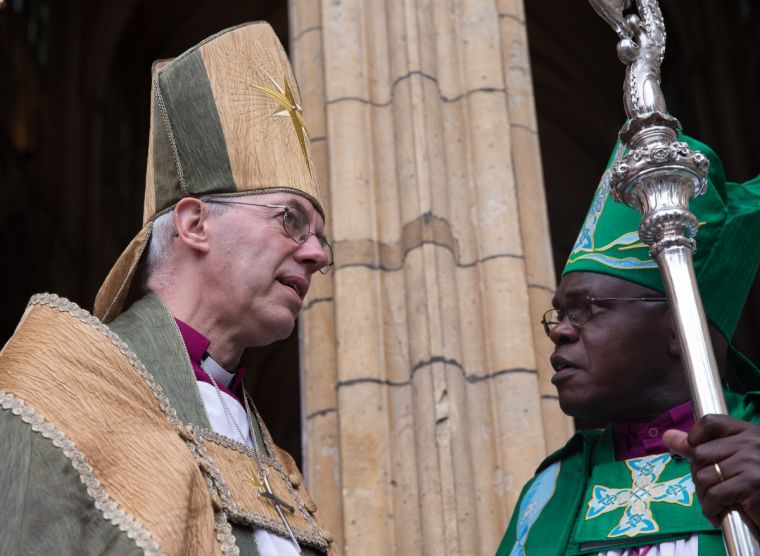Archbishop Of Canterbury To Express Remorse Over Reformation Violence
The Archbishop of Canterbury will express his regrets over violence that occurred during the Reformation this week.
Most Rev Justin Welby will express his remorse in a joint statement with the Archbishop of York, John Sentamu, on Tuesday, a spokeswoman for Lambeth Palace confirmed.

He is expected to call for repentance over the conflict between Churches as the new Protestant movement separated from mainstream Roman Catholicism in the 16th century.
The historic split began in 1517 when Martin Luther, a rebel German monk, nailed his 95 theses to the cathedral door in his town of Wittenburg.
The symbolic event triggered a gradual rupture and led to the formation of various Protestant factions. Centuries of violence between Protestant and Catholic countries followed with rulers who adhered to one Church frequently executing proponents of the other.
Welby's intervention will look to heal divisions and comes a month before the General Synod, the Church of England's Parliament, will hold a debate marking the 500th anniversary of Luther's 95 theses.
"People often look to the past so they don't make the same mistakes again and can move on," a spokesman for the Archbishop of Canterbury said according to the Mail on Sunday.
It is part of a wider move to promote reconciliation and peace between Protestant and Catholics.
Welby has publicly sought to build relations with his UK equivalent, the Archbishop of Westminster, Cardinal Vincent Nichols. The pair have taken part in the prayer and evangelism initiative 'Thy Kingdom Come' for Pentecost and have done a Facebook Live video together sharing their common goals.
Welby has also met Pope Francis three times since he was enthroned in 2013.
Efforts at reconciliation in the UK mark a wider trend towards "ecumenical friendliness".
Ahead of the 500th anniversary Catholic bishops in Germany released a report praising Martin Luther and addressing key disputes between Catholics and Lutherans.
Bishop Gerhard Feige said the "Catholic Church may recognise today what was important in the Reformation – namely, that sacred Scripture is the centre and standard for all Christian life." Given that this was one of the main disputes at stake during the schism, this was a major olive branch from the Catholic bishops.
He also said: "Connected with this is Martin Luther's fundamental insight that God's self-revelation in Jesus Christ for the salvation of the people is proclaimed in the Gospel – that Jesus Christ is the centre of Scripture and the only mediator."
But not everyone is so eager to bridge the divide.
A document released in October and signed by 50 leading evangelical pastors and theologians gives a "statement of evangelical convictions" ahead of the anniversary.
"The issues that gave birth to the Reformation 500 years ago are still very much alive in the 21st century for the whole Church," a statement read. "While we welcome all opportunities to clarify them, evangelicals affirm, with the Reformers, the foundational convictions that our final authority is the Bible and that we are saved through faith alone."
Among the signatories are John Stevens, national director of the Fellowship of Independent Evangelical Churches, Peter Williams, Warden of Tyndale House, Cambridge, Wayne Grudem, Research Professor of Theology and Biblical Studies at Phoenix Seminary and Tim Chester, pastor of Grace Church.











